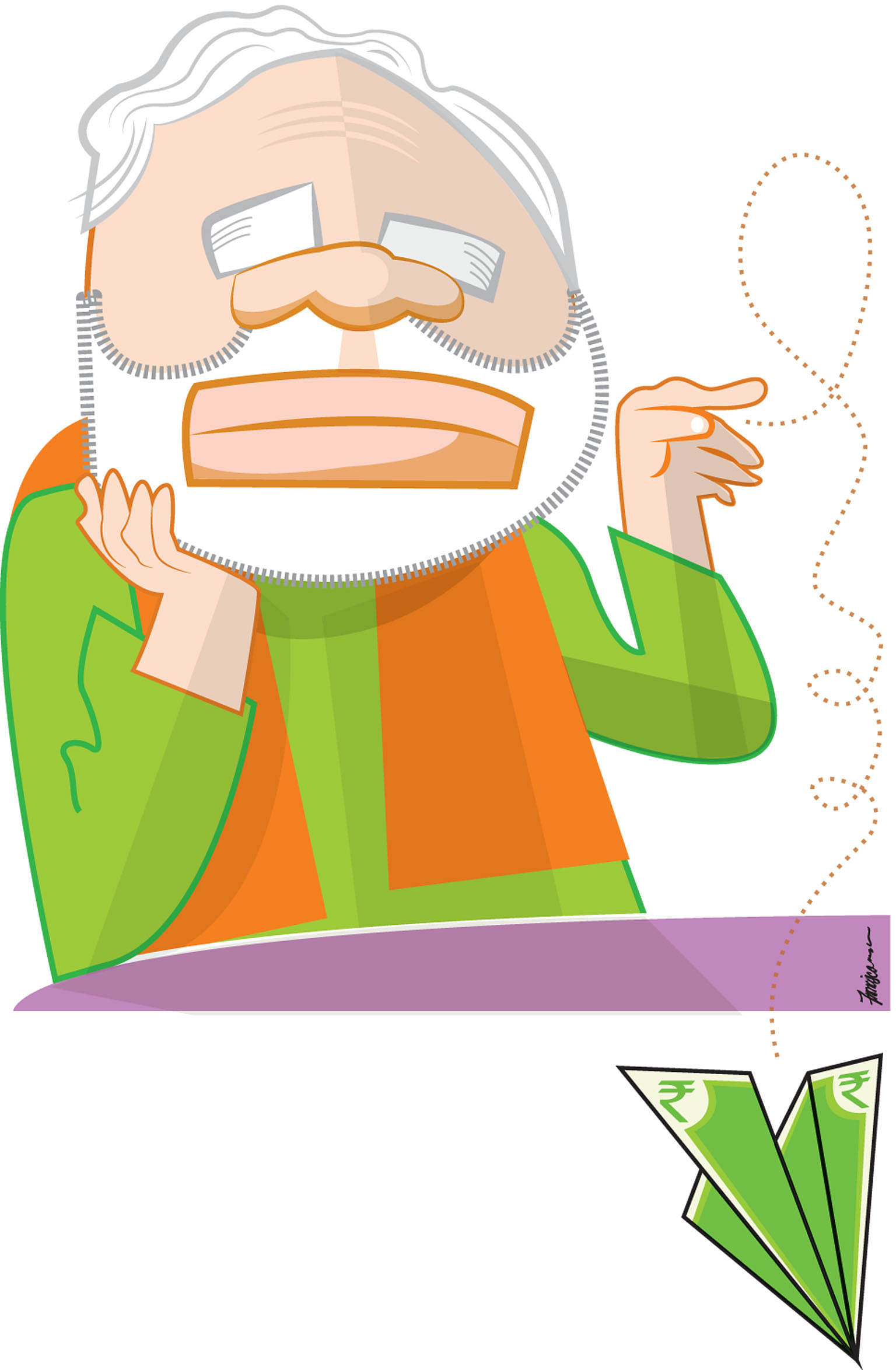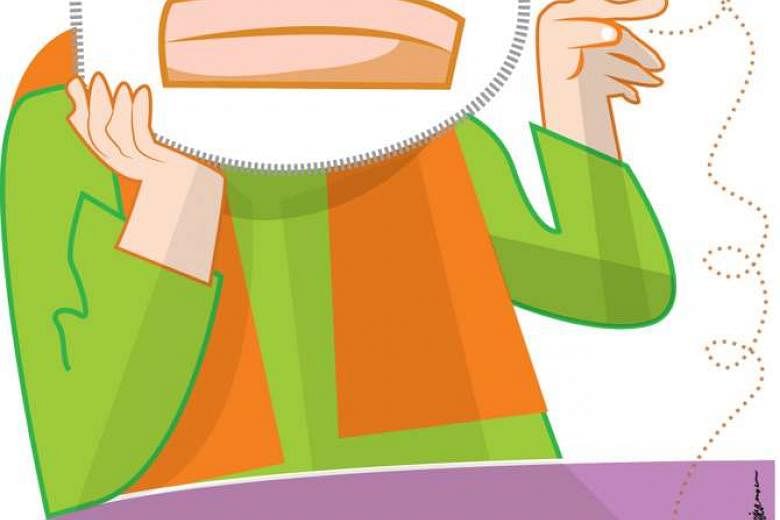Until a few weeks ago, my advice to investors looking at India tended to be broad endorsement of its prospects along with a caveat: Do be aware that Mr Narendra Modi could be a one-term prime minister.
This inevitably raised eyebrows since Mr Modi enjoys high popularity ratings at home. What is more, no one dominates the Indian political landscape as he does. Why would he not be re-elected in 2019?
My reasons were several. For one thing, it will be near impossible for him to repeat his crushing 2014 performance, especially in the heartland states of Uttar Pradesh, where his Bharatiya Janata Party (BJP) won 71 of 80 parliamentary seats, and Bihar, where the party and allies swept 31 of 40 seats. Such results helped BJP to its best-ever parliamentary showing and gave India a single-party majority for the first time in 34 years.
Secondly, Mr Modi's "me, my, mine" approach to all things cast him as so central a figure that come election time, opponents would find it easy to score off him for the shortcomings and failures that inevitably mark the records of even the best governments. And of course, should opposition forces coalesce - as they did in Bihar state elections in October last year - the BJP, which had the highest vote share in that poll, could still be comfortably put down.
A MASSIVE GAMBLE
Today, I am even less certain about what might happen in 2019. Mr Modi's Nov 8 announcement of the cancellation of high-value currency - called "demonetisation" by Indian media - was so audacious (and typically for the man, something he fronted himself rather than have it done by the Finance Minister), that it could go either way.

Mr Modi may feel he had good reason to use the bludgeon. Corruption has eaten into India's vitals, weakening governments and distorting policies. Nine in 10 consumer transactions in India are in cash, mostly unrecorded. The so-called "black" economy - which also includes everything from vast rake-offs enjoyed by the political class on contracts to bribes paid to the local police post for ignoring illegally parked cars - is estimated to be as much as a quarter of India's gross domestic product.
Besides, just about 2 per cent pay income tax, robbing the state of funds needed for public health, infrastructure and education.
The unaccounted money is kept in cash but substantially in gold and real estate - often, as much as half of a property's sale value is settled out of sight. This distorts prices and makes homes unaffordable to many. Any move to prod the cash economy towards paper, or digital transactions, improves monitoring and tax collection.
It is this cash stash that Mr Modi has attacked in the hope of disciplining part of the illegal economy and bringing it to the taxman's heel. By cancelling the 500- and 1,000-rupee notes (500 rupees is about S$10.40), Mr Modi wants their holders to put them into bank accounts or exchange them for new notes with proper documentation. If not, the holders risk losing their pile. The world has not seen a move of this scale in recent memory.
It was also not short on political daring: Which politician would scrap 23 billion notes that account for 86 per cent of the total value of cash in circulation just as the wedding season was approaching? Besides, it is the merchant class, the most artful tax-dodgers, that provide the BJP's core support.
COUNTING THE COSTS
Neither could he have been unaware of the economic cost. Farmers, who just had a good crop after two years of poor monsoons, needed money to buy seeds for the next planting. Even if all their cash is honestly owned, many of them are now short of legal tender at a critical time. Although matters are easing somewhat, the first two weeks saw many businesses stalled and long lines in front of ATMs and bank tellers.
Without question, the economy will be severely impacted this quarter and possibly in the next as well. Mr Modi seems prepared to temporarily surrender the bragging rights to running the world's fastest-growing major economy.
Still, Indians have already turned in the equivalent of US$80 billion (S$115 billion) - the cancelled notes are worth about US$220 billion in total - mostly into bank accounts, with some US$5 billion exchanged for fresh notes. By Dec 30, when the window to return the old cash runs out, more will be scrubbed. Many who are afraid to own up to holding chunks of unaccounted cash have simply thrown bundles of notes into the river.
Meanwhile, several thousand others who deposited the old notes in substantial quantities have got tax inquiries. There also has been a surge in credit and debit card use, along with the use of digital money. PayTM, a mobile wallet firm that is 40 per cent owned by China's Alibaba Group, said it saw seven million transactions on Nov 19. It has added more than five million customers since demonetisation.
As with a lot of what the 66-year-old Mr Modi does, the demonetisation has been political theatre. Announcing the move, Mr Modi showed why he is an unparalleled communicator. When he sold tea as a young boy, he said, the poorer customers who could not afford a full cup would request strong tea to get the same kick. The rich, on the other hand, could not stomach the stronger brew. His measure, Mr Modi said, was a tough one and would greatly inconvenience the vast majority. But he was confident they would stand by him in the struggle.
Although the first wave of excitement over the "surgical strike" on black money has dissipated, India, particularly its populous rural hinterland, has generally responded with stoicism. By-elections held on Nov 19 in BJP-controlled Madhya Pradesh and Assam states showed no apparent fall in support for it.
That could change if disruptions persist. The danger is that the initial excitement turns to despair and, eventually, anger. Mr Modi has asked for 50 days' time to fix things. It may be too long.
"The 'Modi masterstroke', a term contrived by assorted anchors and other clowns on television to hail an unbelievably stupid action, is spreading agony and misery in its wake across the countryside. If there's been any stroke, it's the one the heart of the rural economy has suffered," wrote Mr P. Sainath, who won the Magsaysay award for his chronicles of rural poverty.
Rather reflexively, and perhaps stung by the prospect of their slush funds proving worthless, most opposition parties - including Congress, the Marxists and assorted other groups such as the Aam Aadmi Party (AAP) - have leapt to criticise the Prime Minister. Ironically, the AAP rose to control Delhi state after emerging from the India Against Corruption movement and its leader, Mr Arvind Kejriwal, is a former tax officer.
This may work to Mr Modi's advantage since he will be seen as standing pristinely alone, with most of his opponents boxed into the far corner. A nationwide survey by C-Voter, a polling agency, recorded more than 80 per cent support for the move across income groups.
The cynics suspect that Mr Modi timed his strike to rob opposition parties of their cash hoard just as they were gearing up for several crucial state elections, including prize catch Uttar Pradesh. Others see it as a diversionary tactic.
Mr Modi stormed into office with a promise of "better days are coming", but India's economy, buffeted by a poor external environment and a banking system made sclerotic by loans that soured during the Manmohan Singh decade, is not performing to potential. The rupee is at its lowest in three years and the investment cycle is yet to power up.
Worryingly, job creation has been sluggish; On Tuesday, Larsen & Toubro, the biggest engineering firm, shed 14,000 jobs, or 11 per cent, of its workforce. India has 800 million people below the age of 35.
Still, for the next months at least, he can comfortably wear the cloak of a leader who embodies the struggle of ordinary Indians standing up to the depredations of a corrupt power elite. In an earlier era, the late Indira Gandhi similarly captured the imagination of rural India and the Left with her slogan - Garibi Hatao, Desh Bachao (Remove Poverty, Save the Nation!).
MODI'S PERSONALITY
As much as demonetisation highlights the magnitude of India's corruption, it also offers insights into Mr Modi's personality.
The go-it-alone, secretive nature of the man was evident in the way he kept the decision from Cabinet until the last minute, even taking away the cellphones of ministers to prevent leaks until the announcement.
The sloppy execution, evidenced in the central bank's inability to make replacement money readily available, and the eventual rollback of several conditions, suggest a leader who does not always think through the most important decisions of the day. His closest aides gripe about his disdain for an alternative, or inconvenient point of view. While cowed by his photographic memory, they feel he is often short on perspective.
Neighbours, warily watching India's recent serial testing of nuclear-capable missiles and the Indian Air Force executing practice landings on expressways, have reason to worry about what other risky manoeuvres he may be considering. Demonetisation came without the faintest warning rattle; indeed, as a possible feint, Mr Modi met his military chiefs that afternoon, suggesting his attention that day was on the tense border with Pakistan.
Even so, whether or not it eventually succeeds, the demonetisation has been a powerful statement of resolve. Clearly, more is to come.
India's well-wishers, disappointed to see the nation weakened by a decade of limp-wristed leadership under the Congress party, will join its citizens in celebrating a man who is not only decisive but also determined to clean up the country. They should also be excused from occasionally wishing that on some critical matters, Mr Modi would make haste a tad slowly.

